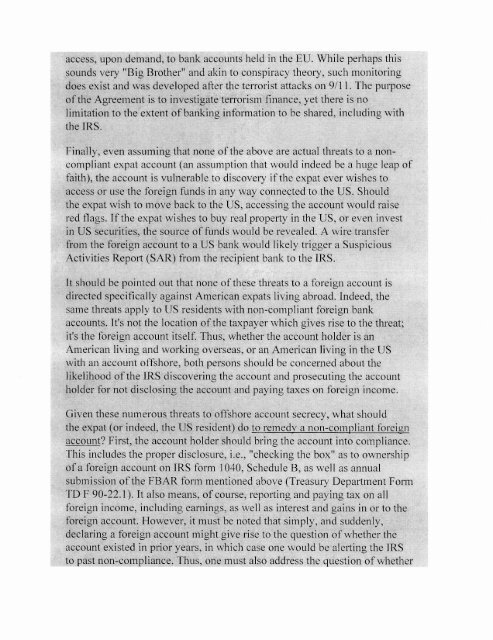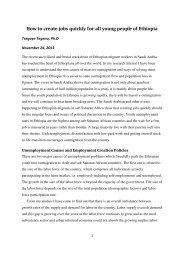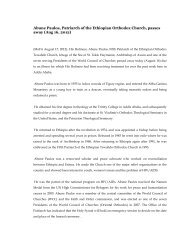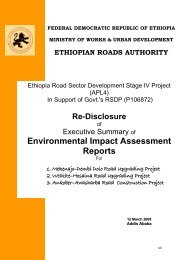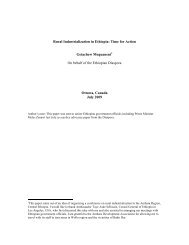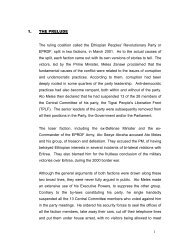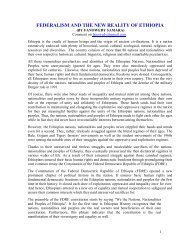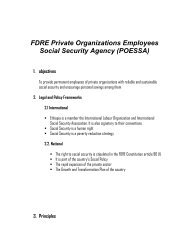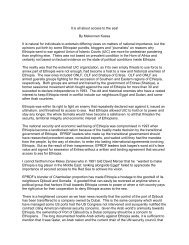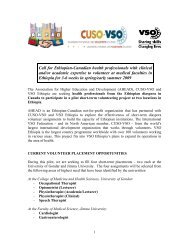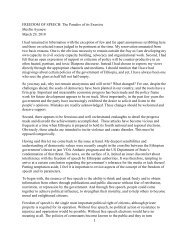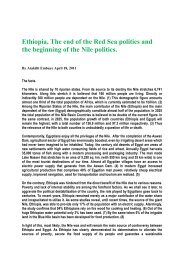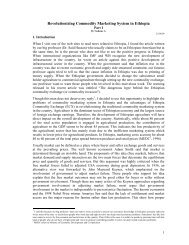Annex - Aiga Forum, an Ethiopian forum for news and views promoting
Annex - Aiga Forum, an Ethiopian forum for news and views promoting
Annex - Aiga Forum, an Ethiopian forum for news and views promoting
You also want an ePaper? Increase the reach of your titles
YUMPU automatically turns print PDFs into web optimized ePapers that Google loves.
access, upon dem<strong>an</strong>d, to b<strong>an</strong>k accounts held in the EU. While perhaps thissounds very "Big Brother" <strong>an</strong>d akin to conspiracy theory, such monitoringdoes exist <strong>an</strong>d was developed after the terrorist attacks on 9/11. The purposeof the Agreement is to investigate terrorism fin<strong>an</strong>ce, yet there is nolimitation to the extent of b<strong>an</strong>king in<strong>for</strong>mation to be shared, including withthe IRS.Finally, even assuming that none of the above are actual threats to a noncompli<strong>an</strong>texpat account (<strong>an</strong> assumption that would indeed be a huge leap offaith), the account is vulnerable to discovery if the expat ever wishes toaccess or use the <strong>for</strong>eign funds in <strong>an</strong>y way connected to the US. Shouldthe expat wish to move back to the US, accessing the account would raisered flags. If the expat wishes to buy real property in the US, or even investin US securities, the source of funds would be revealed. A wire tr<strong>an</strong>sferfrom the <strong>for</strong>eign account to a US b<strong>an</strong>k would likely trigger a SuspiciousActivities Report (SAR) from the recipient b<strong>an</strong>k to the IRS.It should be pointed out that none of these threats to a <strong>for</strong>eign account isdirected specifically against Americ<strong>an</strong> expats living abroad. Indeed, thesame threats apply to US residents with non-compli<strong>an</strong>t <strong>for</strong>eign b<strong>an</strong>kaccounts. It's not the location of the taxpayer which gives rise to the threat;it's the <strong>for</strong>eign account itself. Thus, whether the account holder is <strong>an</strong>Americ<strong>an</strong> living <strong>an</strong>d working overseas, or <strong>an</strong> Americ<strong>an</strong> living in the USwith <strong>an</strong> account offshore, both persons should be concerned about thelikelihood of the IRS discovering the account <strong>an</strong>d prosecuting the accountholder <strong>for</strong> not disclosing the account <strong>an</strong>d paying taxes on <strong>for</strong>eign income.Given these numerous threats to offshore account secrecy, what shouldthe expat (or indeed, the US resident) do to remedy a non-compli<strong>an</strong>t <strong>for</strong>eignaccount? First, the account holder should bring the account into compli<strong>an</strong>ce.This includes the proper disclosure, i.e., "checking the box" as to ownershipof a <strong>for</strong>eign account on IRS <strong>for</strong>m 1040, Schedule B, as well as <strong>an</strong>nualsubmission of the FBAR <strong>for</strong>m mentioned above (Treasury Department FormTD F 90-22.1). It also me<strong>an</strong>s, of course, reporting <strong>an</strong>d paying tax on all<strong>for</strong>eign income, including earnings, as well as interest <strong>an</strong>d gains in or to the<strong>for</strong>eign account. However, it must be noted that simply, <strong>an</strong>d suddenly,declaring a <strong>for</strong>eign account might give rise to the question of whether theaccount existed in prior years, in which case one would be alerting the IRSto past non-compli<strong>an</strong>ce. Thus, one must also address the question of whether


